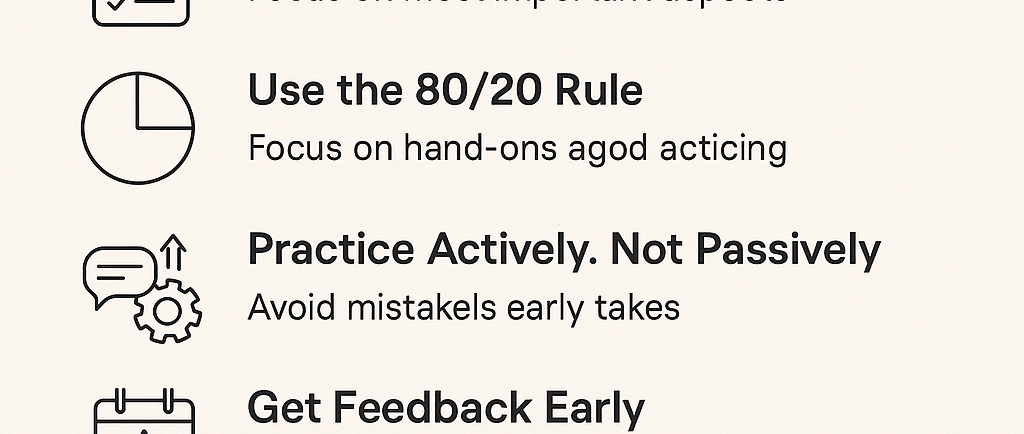How to Learn Any New Skill Easily: A Guide for Students
Blog post description.


In today’s fast-paced world, the ability to learn new skills quickly is more valuable than ever. Whether it’s coding, cooking, speaking a new language, or mastering public speaking, knowing how to learn is just as important as what you learn. Here’s a step-by-step guide to make the process of learning any new skill easier and more effective.
1.Start with a Clear “Why”
Before jumping into a new skill, ask yourself: Why do I want to learn this? A strong reason fuels motivation and keeps you going when things get tough. Whether it’s for a job, personal growth, or just curiosity, having a purpose helps you stay committed.
2.Break It Down (Microlearning)
Trying to learn everything at once is overwhelming. Instead, break the skill into smaller, manageable parts. For example, if you’re learning guitar, start with chords, then strumming patterns, then full songs. Microlearning—focusing on one small piece at a time—helps build momentum and confidence.
3.Use the 80/20 Rule
Also known as the Pareto Principle, the 80/20 rule suggests that 80% of your results come from 20% of your efforts. Identify the core elements of the skill that give you the highest returns. For instance, when learning a language, focus on the most commonly used 500 words first
4.Practice Actively, Not Passively
Watching videos or reading about a skill is a good start—but real learning comes from doing. If you’re learning photography, go out and take pictures. If you’re learning to cook, try recipes. Active practice helps reinforce memory and improve faster than passive consumption.
5.Get Feedback Early
Don’t wait until you’re “perfect” to show your work. Feedback is essential for growth. Join online communities, take short quizzes, or ask mentors for input. Early correction prevents you from building bad habits and accelerates learning.
6.Set Short-Term Challenges
Make your learning fun and goal-oriented. Challenge yourself to create a project, teach someone else, or finish a task within a deadline. For example, “Learn and play one song in 7 days” or “Write a 300-word blog post in French.” Short challenges keep the momentum going.
7.Use Multiple Learning Modes
Everyone learns differently—some are visual learners, others prefer audio or hands-on. Mix it up. Watch videos, read books, use flashcards, listen to podcasts, and practice with real-life tasks. The variety makes learning stick better.
8.Track Your Progress
Keeping track of what you’ve learned motivates you to keep going. Maintain a journal, use a habit tracker, or make a progress board. Celebrating small wins releases dopamine, the brain’s reward chemical, which makes you want to keep learning.
Conclusion
Learning a new skill doesn’t have to be hard. With the right mindset and approach—clear goals, small steps, active practice, and consistent feedback—you can master anything faster and more easily. The real secret? Start today, and don’t stop.
